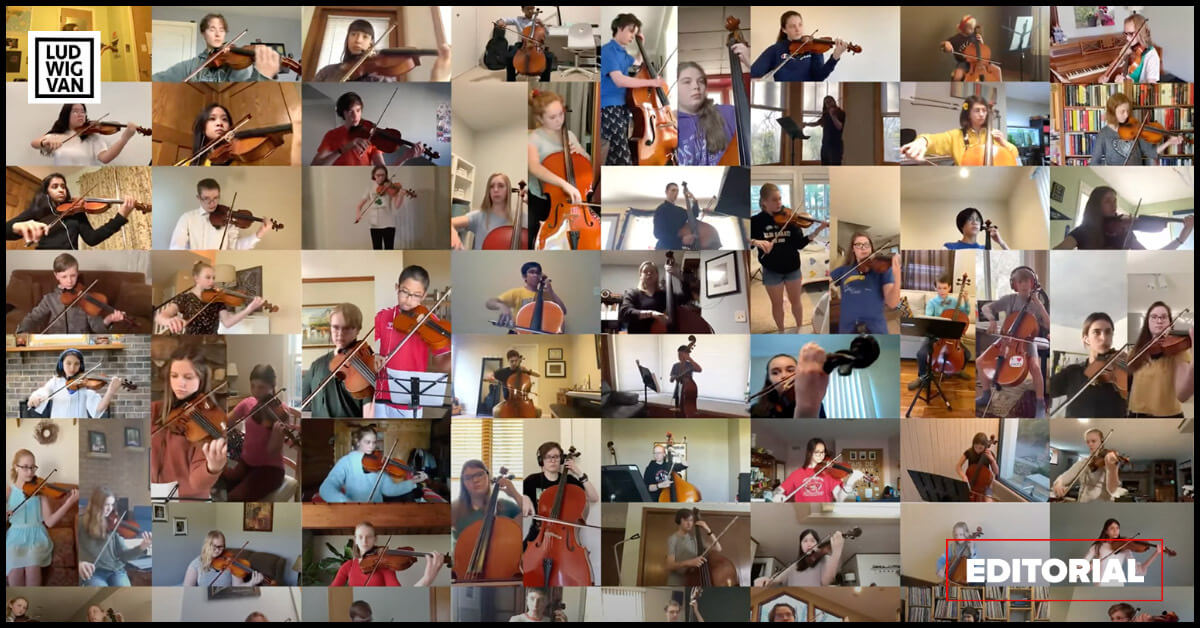
With COVID restrictions easing and vaccination rates rising, real-life concerts are creeping back, and people seem hungry for a return to in-person events.
What happened to livestreaming?
It seems like everyone and their mom became camera-ready in 2020. The year progressed from a bunch of string quartets playing in their living rooms to highly produced, ticketed shows.
A recent study published in Marketing Science showed music consumption from online video streaming platforms increased dramatically — especially in countries with more COVID-19 cases, stricter lockdown policies, and sharper declines in individuals’ mobility.
Last year we also said that livestreaming was here to stay.
The “Never Go Back” test
Miraculous as it sounds, there is a handy framework to help predict if something is catching on.
It works like this:
When you hear about some new way of doing things, our first reaction is:
CHANGE –> UNFAMILIAR –>YUCK –> I LIKE THINGS THE WAY THEY ARE
But every once in a while, something clicks. You can tell when it happens because it changes the way people do things, and you best pay attention.
For example:
Uber changed the way taxis work.
- push a button
- see the car approaching on a map with a precise ETA
- driver has the fastest route to your destination
- hop out and it pays automatically from the app
Can you imagine going back to taxis?
- look up the phone number for a taxi service
- call the taxi dispatch and book a taxi
- remember the ETA and wait for the car to arrive — maybe it never does?
- get in, tell them the address
- does the driver know how to get there?
- deal with the awkward process of manual payment options and tipping
What about online concerts?
- buy ticket online
- get the link
- watch the concert in pyjamas
In-person concerts
- purchase ticket (did you get a good seat?)
- get dressed and make your way to the venue (don’t be late!)
- find parking
- find your seat and watch the show
- pay for parking
- go home
Despite the apparent ease of use for online concerts, it has yet to pass the test.
Right now, people seem like they are itching to go back to the concert hall. It’s unfolding as we speak. There’s also hard science linking live music events and the correlation with a person’s sense of well-being. One could argue this is also why the development of mass marketed recorded music didn’t kill live music.
At the same time, new digital platforms are still rolling out. On the business end, Deezer invests in Driift and Dice acquires Boiler Room.
In the words of Netscape’s former CEO Jim Barksdale, “Don’t mistake a clear view for a short distance.” Just because something will happen eventually, doesn’t mean it’s going to happen anytime soon.
The coming years look more like the development of hybrid and “pandemic proof” solutions for venues, rather than a fundamental shift in the way we consume live events.
Until then, feel free to use the “Never Go Back” framework to help you live in the future, before the future arrives. You’re welcome.
#LUDWIGVAN
Get the daily arts news straight to your inbox.
Sign up for the Ludwig van Daily — classical music and opera in five minutes or less HERE.
- THE SCOOP | Royal Conservatory’s Dr. Peter Simon Awarded The Order Of Ontario - January 2, 2024
- THE SCOOP | Order of Canada Appointees Announced, Including Big Names From The Arts - December 29, 2023
- Ludwig Van Is Being Acquired By ZoomerMedia - June 12, 2023



